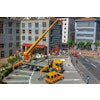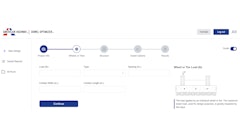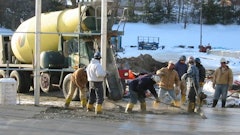In observance of September 2015 National Preparedness Month, GenTent® Safety Canopies issued its Top 10 Portable Generator Safety Tips. Coinciding with the U.S. campaign targeting power outages, the safety list stresses precautionary steps, as well as safe operating procedures to avoid CO poisoning, electrocution, and even death while ensuring the generator remains ready to run.
Sponsored by the Federal Emergency Management Agency within the Department of Homeland Security, National Preparedness Month encourages Americans to take steps to prepare for home, business, school or community-based emergencies. Portable generator usage is of particular concern as the Consumer Products Safety Commission (CPSC) underscored that, "the majority (85 percent) of non-fire related deaths (1999-2012) were linked to carbon monoxide poisoning from improper operations of portable generators."
To better inform operators of improper use, GenTent has developed its Top 10 Portable Generator Safety Tips. The list is a must-have companion to operating manuals and placards, identifying unsafe usage before CO poisoning, electric shocks, burns and other common injuries occur.
Top 10 Portable Generator Safety Tips:
1. Never run a generator in wet weather without a generator tent to avoid electrocution and generator damage.
2. Never operate indoors or in a garage, even with the door open or CO poisoning may result -- always run it at least 10 feet from any buildings.
3. To prevent overheating, never fully enclose the generator.
4. Avoid creating a circuit through your body by using only one hand when touching your generator and always wear rubber-soled shoes.
5. Don't run your generator in Hurricane Force ( > 60-70mph) winds.
6. Never stand over the hot muffler area while refueling.
7. Avoid fuel clogging -- shut off the fuel valve and run the generator until it stalls to avoid clogging of the carburetor or fuel injectors. Use fresh fuel and fuel stabilizer if storing the generator for long periods of time.
8. Turn off the generator main switch before plugging in the generator or starting.
9. Never operate in floodwaters.
10. For emergency backup power to a home or a building, always use a safe transfer switch.
"Regardless of the numerous warning labels posted on portable generators, many owners continue to use them under unsafe conditions," said Mark Carpenter, CEO, Founder, GenTent Safety Canopies. "As a leading promoter of portable generator safety, GenTent has developed this list as a public service to inform operators and encourage safe operations under any conditions."













![Fcp Racatac Chair 10893876[1]](https://img.forconstructionpros.com/mindful/acbm/workspaces/default/uploads/2025/10/fcp-racatac-chair-108938761.10l0At5WXv.png?ar=16%3A9&auto=format%2Ccompress&bg=fff&fill-color=fff&fit=fill&h=135&q=70&w=240)
